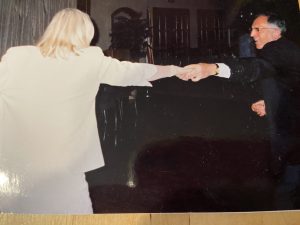Dreams are ephemeral tapestries woven in the deepest recesses of our minds, where reality bends and dissolves, logic surrenders to the fantastical, and the impossible becomes commonplace.
Before the first fluttering of consciousness at dawn from the final descent into slumber, we traverse this enigmatic realm nightly, embarking on journeys that defy definition and leave us questioning the very nature of existence.
But what are dreams? Are they mere phantoms conjured by an overtaxed mind, or fleeting glimpses into a parallel reality? Are they messages from beyond the veil, or figments of our deepest desires and anxieties? Throughout history, philosophers, theologians, and artists have grappled with these questions, each offering their own interpretation of this enigmatic phenomenon.
In the opulent halls of ancient Egypt, dreams were seen as divine messages from the gods, offering guidance, prophecy, and warnings. The Egyptians meticulously documented their dreams, interpreting symbols and omens to navigate the complexities of everyday life.
In the vibrant tapestries of medieval Europe, dreams were often populated by demons, angels, and mythical beasts, reflecting the deeply religious worldviews of the time.
As the Age of Reason dawned, dreams were relegated to the realm of superstition and dismissed as the mere “firing of the neurons.” However, the 20th century witnessed a resurgence of interest in the dream world, thanks in part to the groundbreaking work of Sigmund Freud. In his seminal work, “The Interpretation of Dreams”
Freud proposed that dreams are the “royal road to the unconscious,” offering a window into our deepest desires, fears, and conflicts.
Today, the scientific community continues to unravel the mysteries of the dream state. Neuroimaging studies have identified specific brain regions associated with dreaming, while researchers explore the potential therapeutic benefits of dream analysis. However, the essence of dreams – their subjective, symbolic, and often nonsensical nature – remains largely elusive.
Yet, despite the lack of definitive answers, the allure of dreams persists. They continue to spark our imaginations, ignite our creativity, and offer solace in times of darkness. Whether they are fleeting glimpses into the unknown, mere figments of our minds or bits of undigested potato, dreams hold a unique power to transport us beyond the boundaries of our everyday lives.
Many twentieth century authors wrote that dreams extend beyond their narrative function and act as a gateway to the unconscious, a place where our deepest desires and fears reside and that “dreams are the whispers of our soul, the language of our unconscious mind” and by understanding our dreams we can come to a deeper understanding of ourselves and our place in the universe.
We can dismiss our dreams as mere phantoms but I view them with with reverence and awe. I see my dreams as a sacred space, a holy veil that separates me from the unknown. I see my dreams as a metaphorical bridge between the conscious and the unconscious, the real and the unreal, the sacred and the profane and the whispers of the divine and echoes of eternity.”
By exploring the enigmatic realm of my dreams I embark on a journey of self-discovery. I confront my deepest fears and desires, grapple with my mortality, and glimpse the vastness of the universe.
Whether my dreams are fleeting fantasies or portals to another reality, dreams remind me of the many mysteries that lie still hidden within myself and the world around me.
In the final analysis, the meaning of dreams will remain a mystery. They are a tapestry woven from the threads of our experiences, desires, and anxieties, a reflection of our inner world that can be both beautiful and terrifying. Yet, it is this very ambiguity that makes them so fascinating. For in the realm of dreams, anything is possible, and we are free to explore the furthest reaches of our imagination.
So, the next time you slip into the spiritual embrace of sleep I recommend that you allow yourself to be carried away on the wings of your dreams; embrace the unknown, explore the frightening, and discover the secrets that lie hidden within the depths of your soul. For in the realm of dreams, you are not yourself – you are a God.







